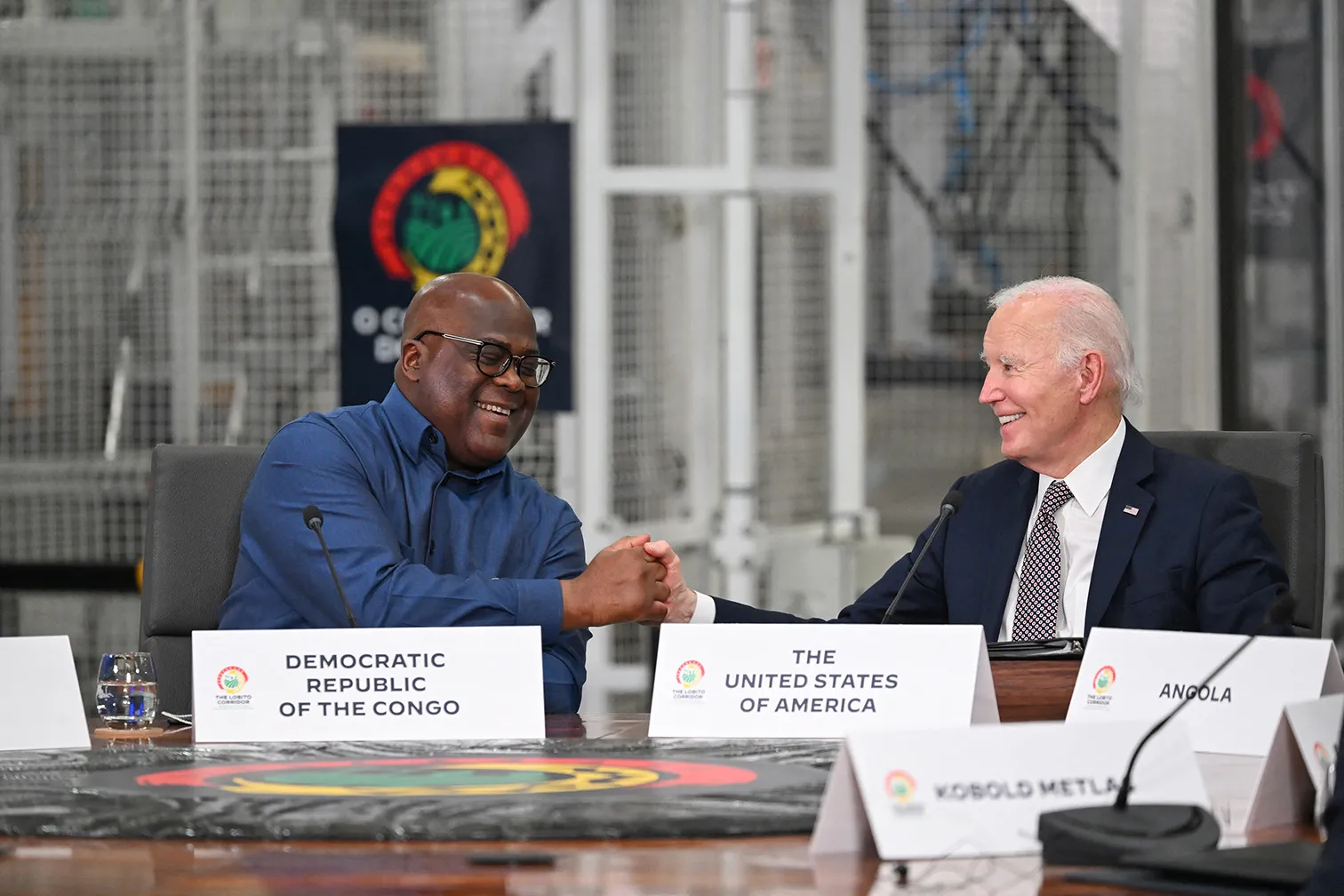President Joe Biden pledged an additional $600 million on Wednesday for a major cross-continent rail project, aiming to strengthen U.S. ties with sub-Saharan Africa and promote economic development in the region.
Speaking on the final day of his visit to Angola, Biden highlighted the Lobito Corridor railway, a key infrastructure initiative involving the refurbishment of 800 miles (1,300 kilometers) of rail lines connecting Zambia, Congo, and Angola. The project, part of a broader U.S. strategy to increase its influence in the region, is seen as a critical step in advancing access to vital minerals such as cobalt and copper—key materials for electric vehicle batteries and clean energy technologies.
“Africa has been left behind for much too long. But not anymore. Africa is the future,” Biden told regional leaders, emphasizing the potential of the rail project to transform the region’s economy. He compared the initiative to the impact of the U.S. transcontinental railroad, noting that cargo which once took 45 days to reach the U.S. would now take less than 45 hours using the new rail corridor.
By the end of the decade, the Lobito Corridor could provide a vital link between southern Africa’s east and west coasts, positioning the region as a potential powerhouse for trade and energy production. Biden suggested that the project could shift the region from being a food importer to a food exporter.
In total, the U.S. has committed $4 billion to the Lobito Corridor project, which is also being financed by the European Union, the G7 nations, a Western-led private consortium, and African banks.
Biden was joined by the presidents of Angola, Congo, and Zambia, who all praised the rail project. Congo’s President Félix Tshisekedi called it a “game changer” for his country, predicting it could create tens of millions of jobs and dramatically alter the region’s economic trajectory. Angola’s President João Lourenço described the project as a “lynchpin for economic development.”
The Lobito Corridor represents the largest U.S. investment in a rail project outside of the United States, according to Biden. The Biden administration is positioning the initiative as a catalyst for increased Western private sector investment in sub-Saharan Africa.
Although the rail corridor is years away from completion, much of the work is expected to take place under the administration of Biden’s successor, former President Donald Trump, who is set to take office in January. The Biden White House notes that past efforts to boost African business interests, including through targeted investments like the Lobito project, have garnered bipartisan support in Congress, with backing from Republicans and key figures in Trump’s administration.
The Lobito Corridor is expected to provide a lasting legacy of U.S. investment in Africa, strengthening ties between the U.S. and countries in the mineral-rich region.

